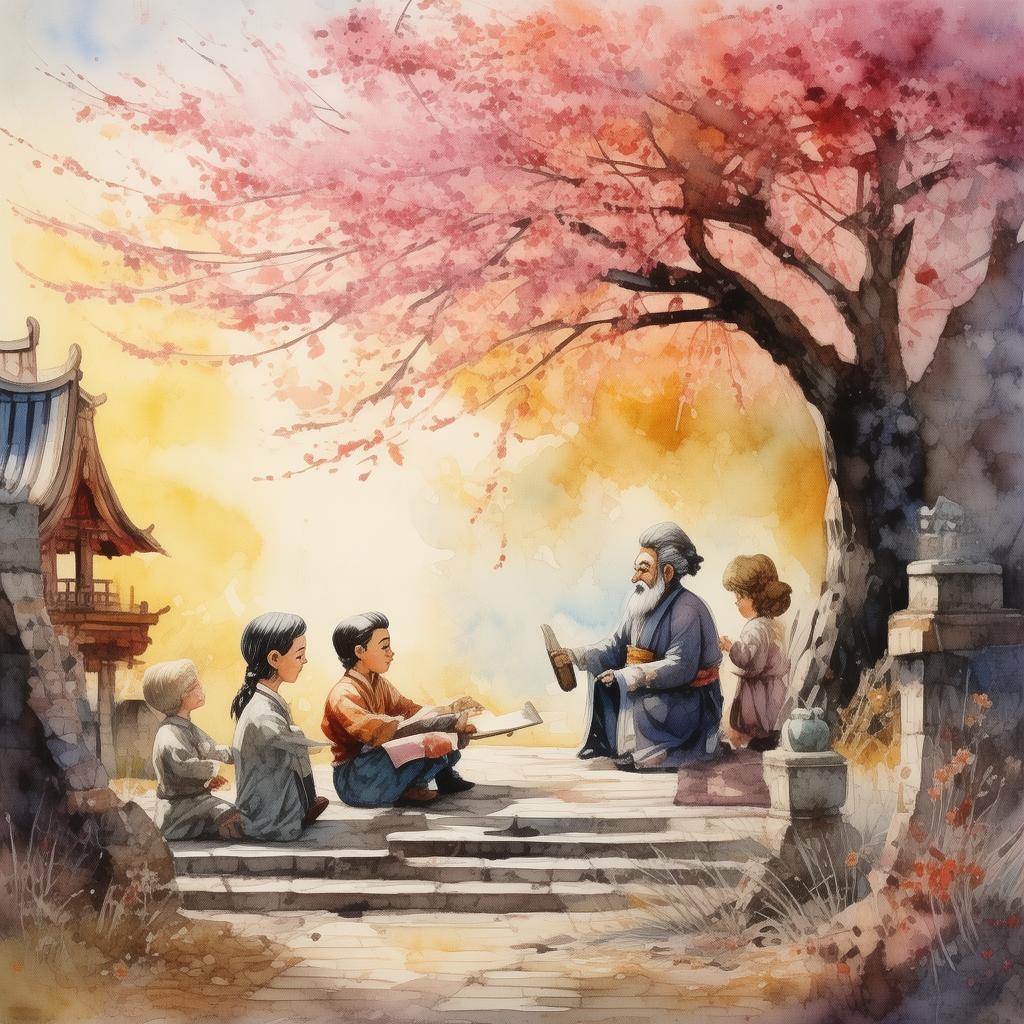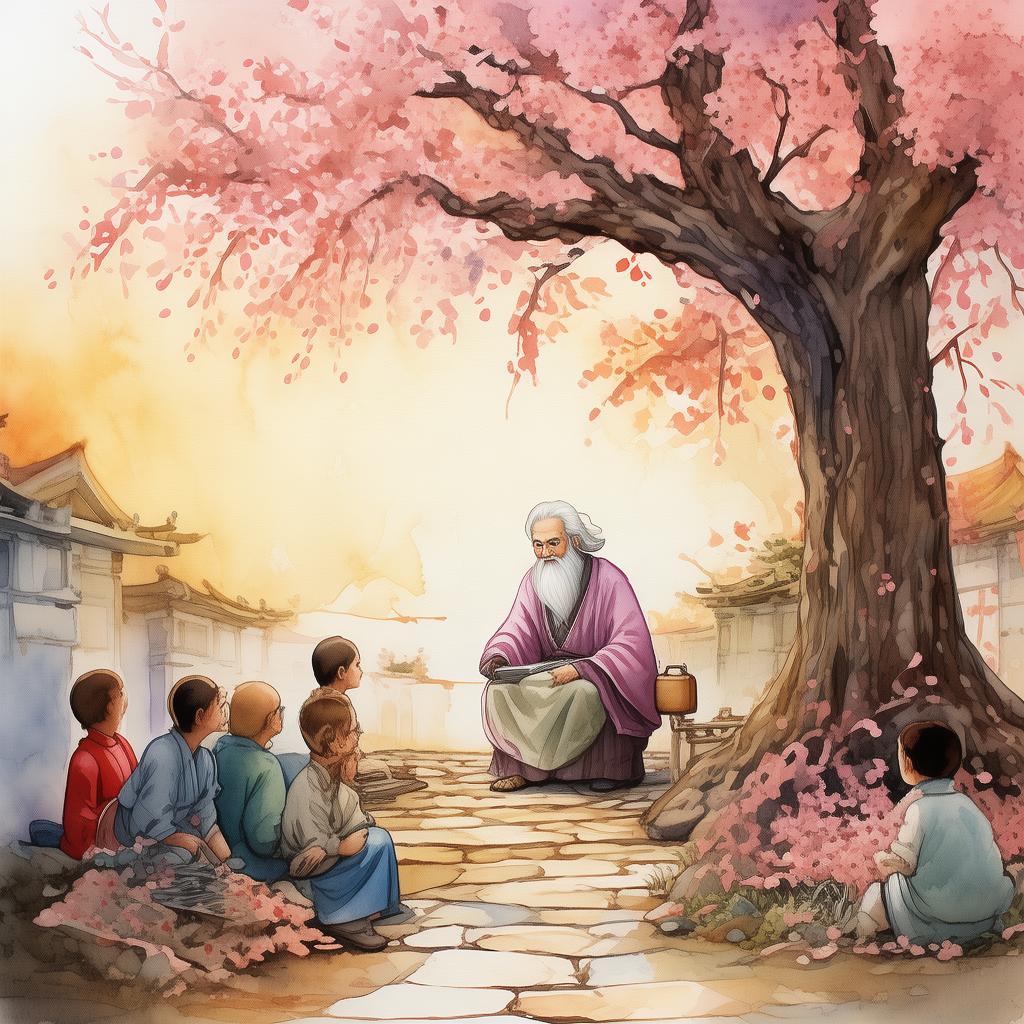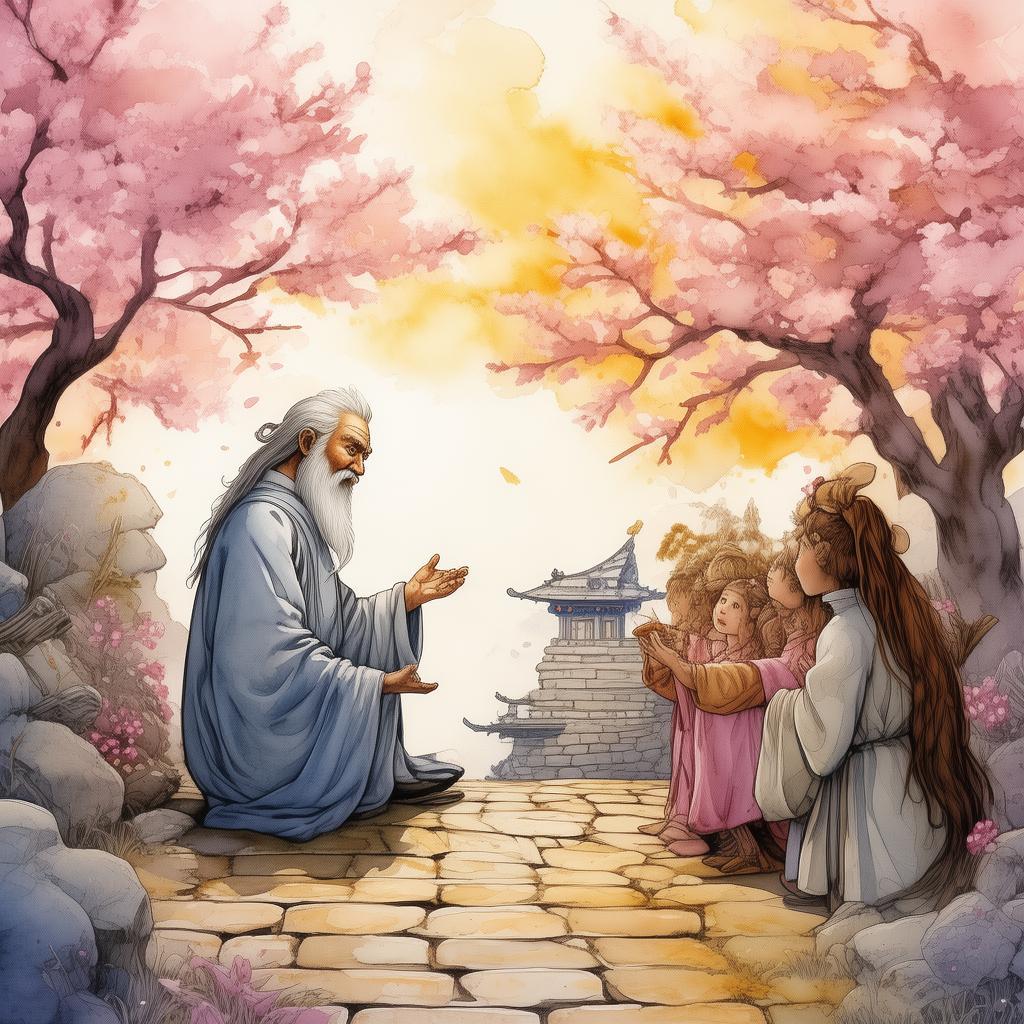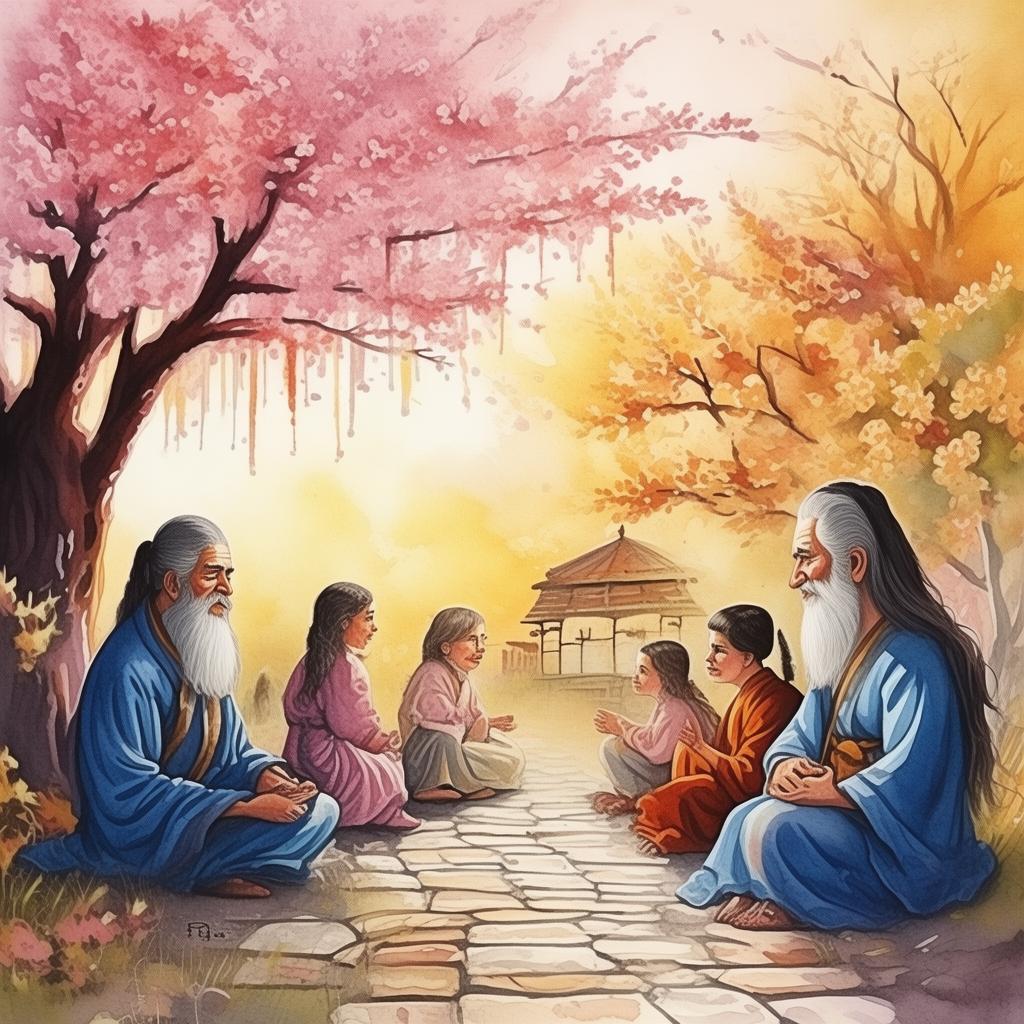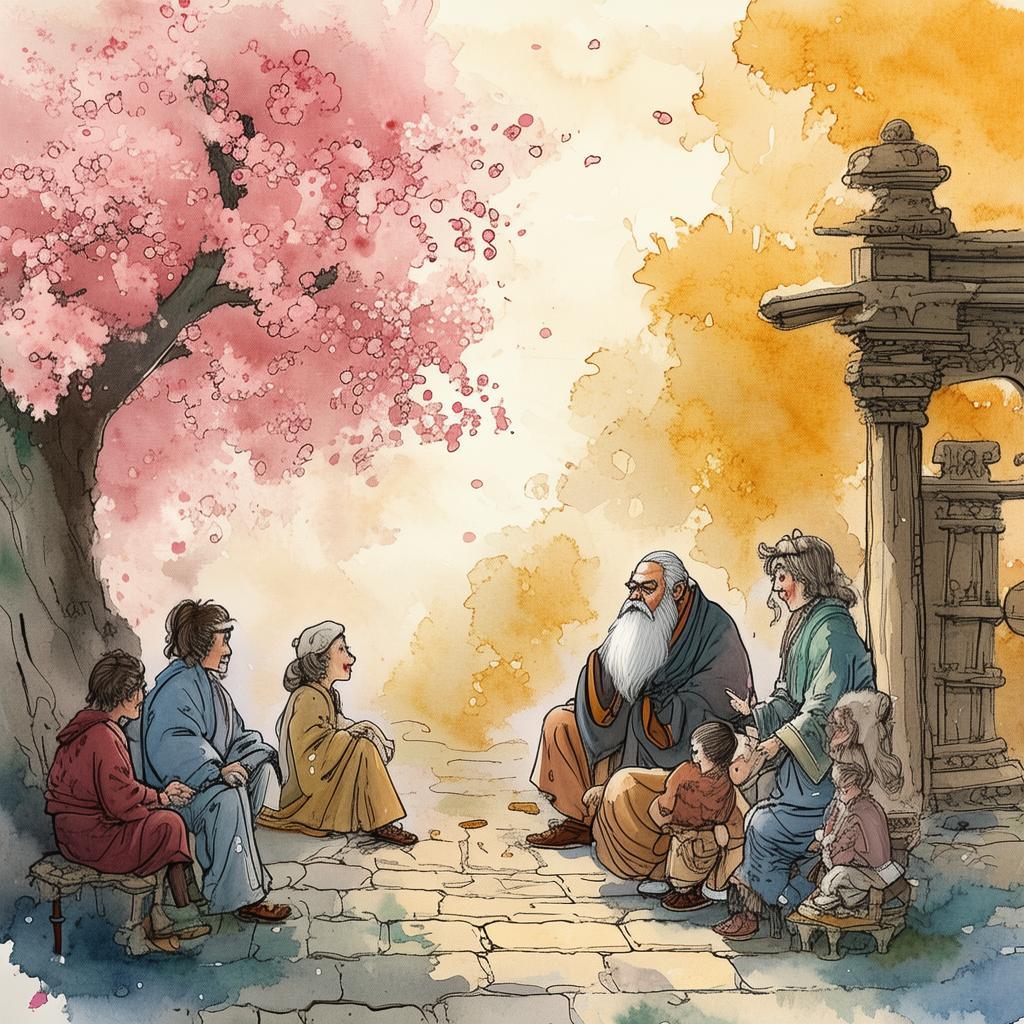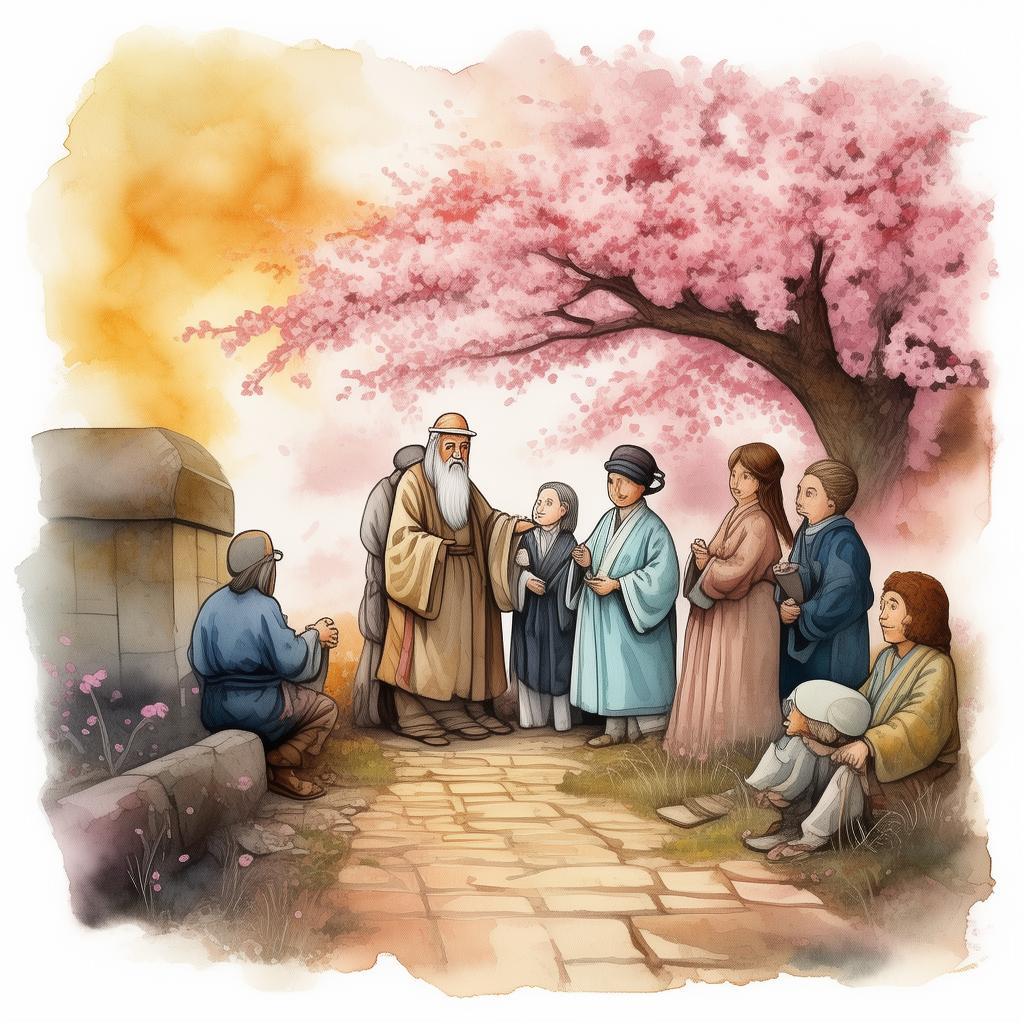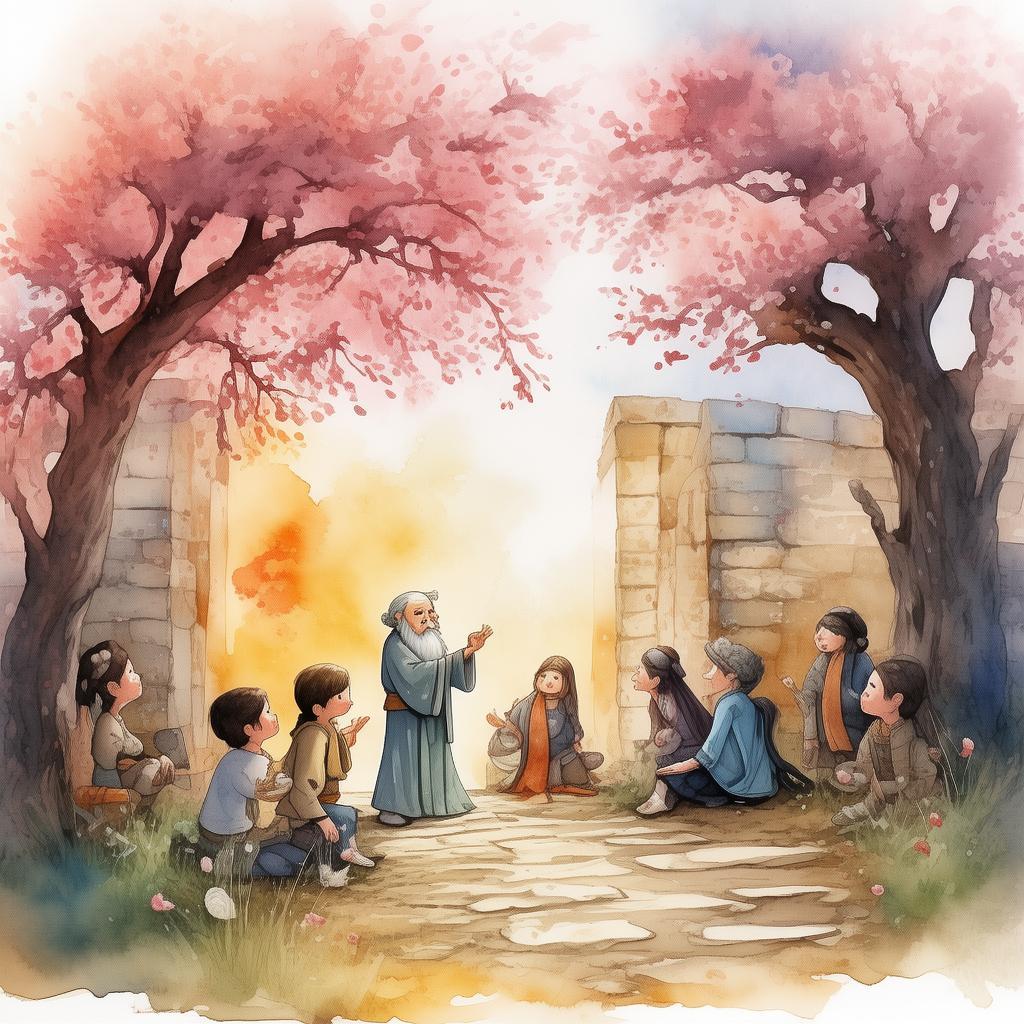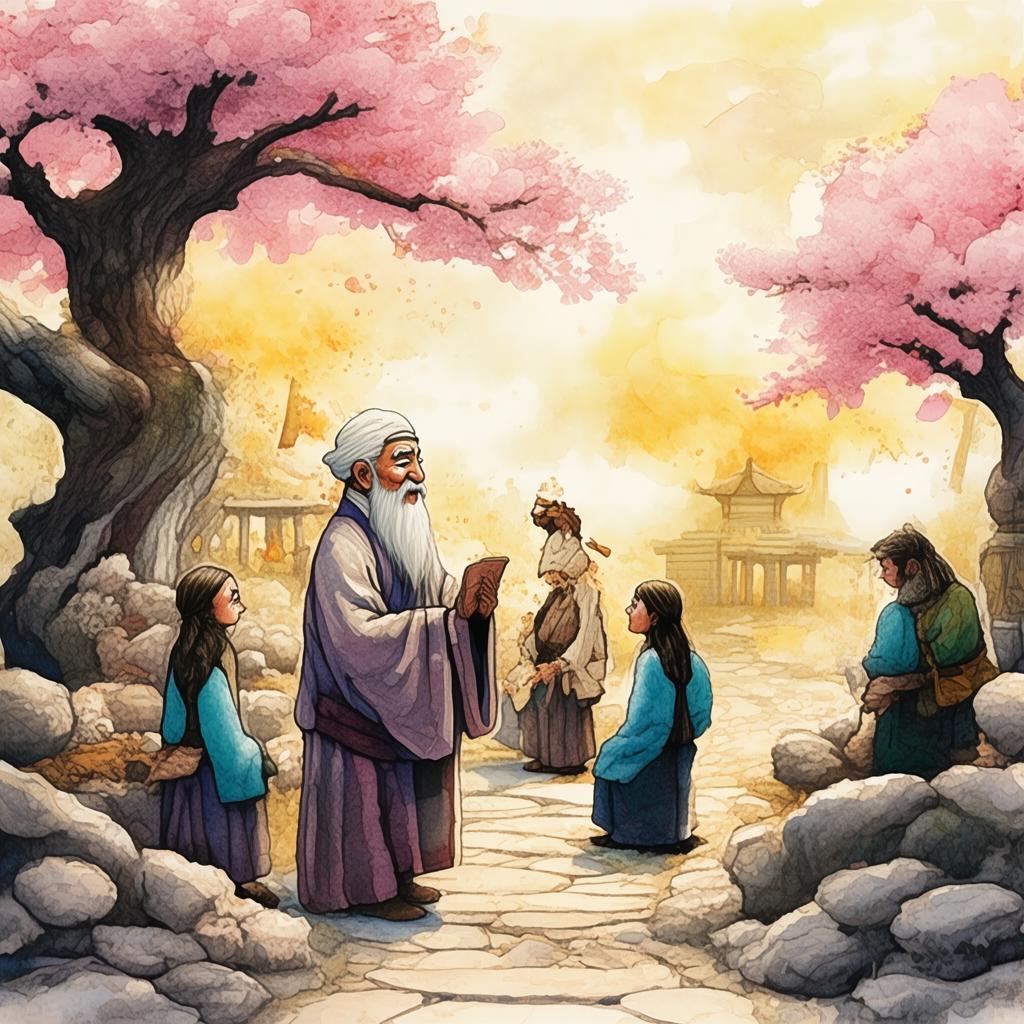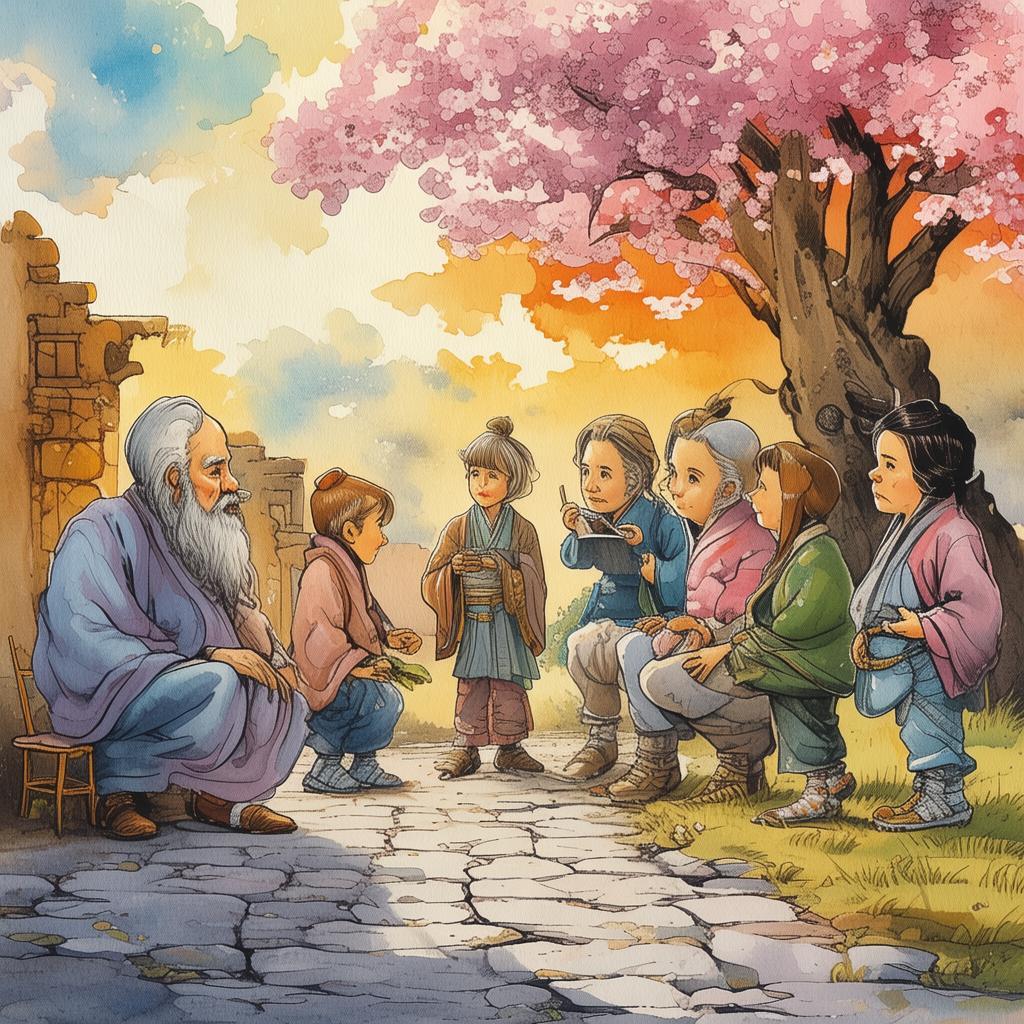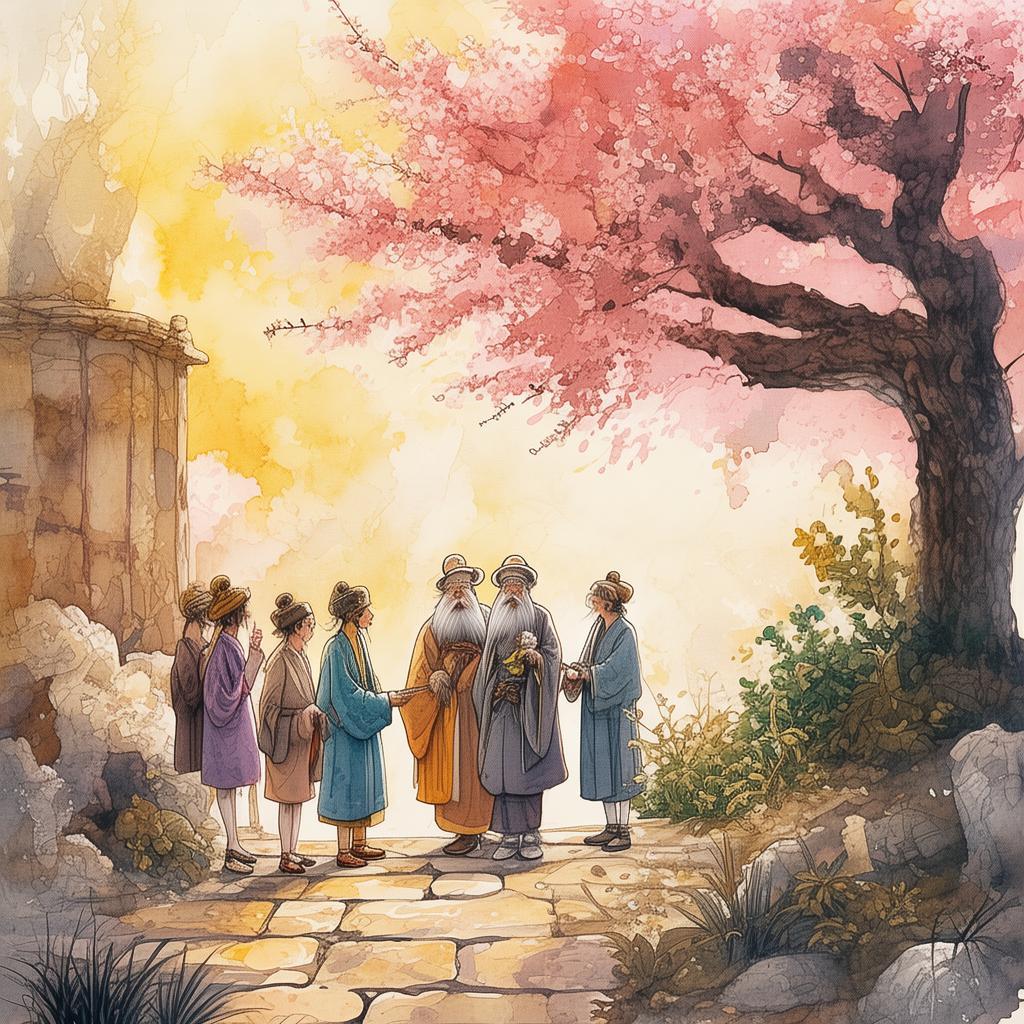Whispers in the Wind: The Haunting of the Phantom Whip
In the remote, fog-shrouded village of Linglong, nestled between towering mountains and a treacherous river, there was a legend that had been whispered through generations. It spoke of the Phantom Whip, a cursed artifact that brought misfortune and death to those who dared to touch it. The villagers spoke of it with hushed tones, their eyes wide with fear as they recounted the tales of the past.
Among these villagers was a young man named Ming, a curious and adventurous soul who had always been fascinated by the legends of his ancestors. Ming's father, an old man with a face weathered by the years, often told him stories of the Phantom Whip, warning him never to seek it out.
One crisp autumn evening, as the sun dipped below the horizon, casting long shadows across the village, Ming found himself alone by the riverbank. The cool breeze carried with it the scent of pine and the distant sound of the river's gentle murmur. Ming, lost in thought, noticed a peculiar object sticking out of the mud near the river's edge. It was a whip, its handle intricately carved with ancient symbols, and its braided leather strap seemed to shimmer with an eerie glow.
Curiosity got the better of Ming. He knelt down and reached for the whip. As his fingers brushed against the leather, a cold shiver ran down his spine. The symbols on the handle seemed to come alive, their carvings glowing brighter, and a chilling whisper echoed in his ears, "You have awakened me, Ming. Your fate is now intertwined with mine."
Ming looked around, but there was no one else in sight. The village was quiet, save for the rustling leaves and the distant call of an owl. He stood up, feeling a strange compulsion to take the whip. Without thinking, he wrapped it around his arm, feeling a strange warmth seep into his skin.
That night, Ming's dreams were haunted by visions of a spectral figure, a ghostly apparition that bore an uncanny resemblance to his own father. The figure spoke to him in riddles, telling him that the Phantom Whip was a vessel for the spirit of an ancient warrior who had been cursed to wander the earth, seeking revenge for his untimely death.
Determined to uncover the truth, Ming began to investigate the legend. He spoke to the village elder, an old man with a long white beard, who revealed that the Phantom Whip was once owned by a powerful general who had been betrayed by his own soldiers. The curse was cast upon him by a sorcerer, who wished to claim the whip's power for himself.
As Ming delved deeper into the mystery, he discovered that the village was not as peaceful as it seemed. The river, once a source of life, had become a source of danger, with villagers disappearing without a trace. Ming realized that the Phantom Whip was the key to these disappearances, and the spirit of the general was the unseen enemy that preyed on the innocent.
With the help of his childhood friend, Li, and the village's only doctor, who possessed a deep knowledge of ancient lore, Ming set out to break the curse. They traveled to the ruins of an old temple, where they believed the sorcerer's spirit still lingered. Inside the temple, they found the whip's resting place, a pedestal carved from the same stone as the temple itself.
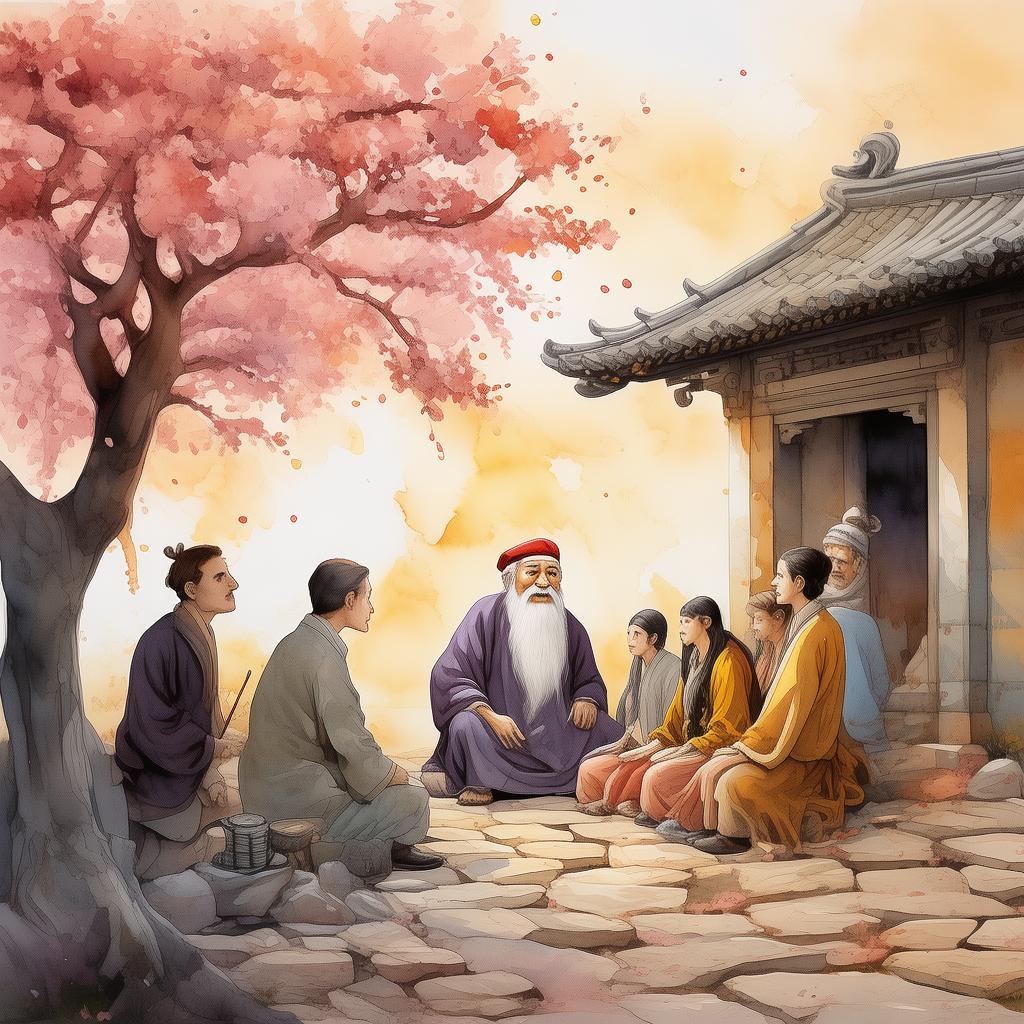
As they approached the pedestal, the air grew thick with an otherworldly energy. Ming felt the whip's warmth intensify, and the ghostly figure of the general appeared before them, his eyes filled with sorrow and a hint of madness.
"You have come to end my suffering," the general's voice echoed through the temple. "But know this, Ming, my spirit cannot be destroyed. Only the purest heart can seal my curse."
Ming, with the help of Li and the doctor, performed a ritual to seal the curse, using herbs and incantations passed down through generations. As they chanted, the whip's glow faded, and the general's spirit began to dissipate. In a final act of mercy, he whispered a word of gratitude to Ming, and with a final, faint whisper, he vanished.
The village was saved, and the river once again flowed with clear water. Ming had faced the unseen enemy and emerged victorious, but the experience had changed him forever. He had learned that some battles were not fought with weapons, but with courage and the knowledge of one's ancestors.
Ming returned to his village, the Phantom Whip now a relic of the past, its power sealed away. He had become a hero to his people, a guardian of their folklore, and a reminder that some enemies are not of this world, but of the unseen realm that lies just beyond our senses.
✨ Original Statement ✨
All articles published on this website (including but not limited to text, images, videos, and other content) are original or authorized for reposting and are protected by relevant laws. Without the explicit written permission of this website, no individual or organization may copy, modify, repost, or use the content for commercial purposes.
If you need to quote or cooperate, please contact this site for authorization. We reserve the right to pursue legal responsibility for any unauthorized use.
Hereby declared.
